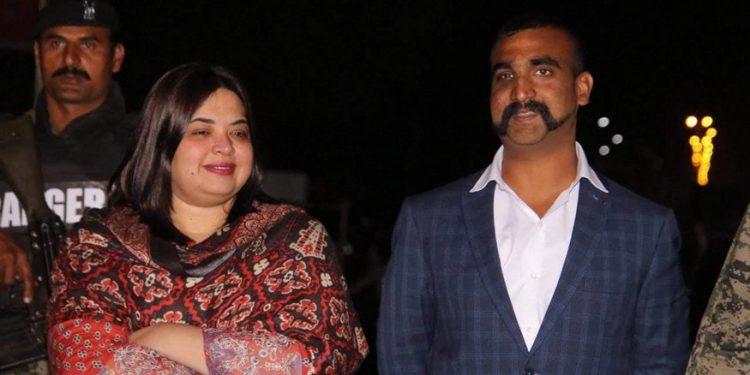A palpable chill has set in on the political scene since February 26 just as the nation was warming up in anticipation of the approaching Lok Sabha polls. This has largely to do with the uncertainties surrounding a war-like scenario, with Pakistan and India facing off repeatedly in the skies and on the ground.
The tensions have reduced of late, after the release of IAF Wing Commander Abhinandan Varthaman from Pakistani custody, in what looked like a small but significant contribution from Prime Minister Imran Khan to cool frayed tempers. Not only that, this one single event has helped Pakistan, to some extent, change its pro-terror image at an international level. Imran has somewhat succeeded in projecting himself and his government as a democracy that believes in better relations with India but possibly hemmed in by the presence of a large number of terrorists on that country’s soil. This thought is further strengthened since the Pulwama attack and India’s claim that it would take revenge. Close on the heels of Pulwama, again on 18 February, an Indian Army Major and three soldiers were killed in encounter with terrorists in the same district of Pulwama in Kashmir. A day after the air strikes and Pakistan’s retaliation, IAF acknowledged the death of Flight Commander Deepak Pandey on 27 February in a MiG crash that had occurred in the dogfight. On March 1, once again, five Indian armed forces personnel were killed in an encounter with terrorists in Kupwera. Similarly, on 3rd March, five more armed personnel lost their lives in Kupwera. The barbaric regular slaughtering of Indian armed personnel continues unabated. These are huge festering wounds that India is unable to pinpoint and take remedial actions.
While it may be easy to blame one political outfit or praise another political outfit, the end result is for all to see. Our young trained soldiers are dying virtually every day. Admittedly, these events are being politically utilized to the hilt and a false sense of nationalism has clouded the vision of most countrymen. Politics apart, the need of the hour is to introspect and immediately revamp the quality of military and police leadership in India. When 44 CRPF soldiers die travelling in an enclosed bus in a huge convoy, no superior is taken to task for the intelligence failure as well as visible mismanagement. Nobody questioned why such a large number of policemen were travelling on road, attracting attention in a terror prone area. It would be normal to question whether the same men could not have travelled in smaller groups. Is it not possible that the same bureaucracy that failed in its primary responsibilities managed to point the finger at the obvious enemy of choice and virtually start a war that had the potential to escalate to dangerous proportions? Not everything is politics. A political leader cannot possibly be on a war field. The people holding the reins of commanding the forces, just like Supreme Court judges, should also be made answerable for the precious lives of the young soldiers lost pointlessly inside our country. It is interesting to note that while people lit candles for the martyrs of Pulwama, no one had bothered to shed a tear for 76 young CRPF personnel killed by Maoists in Dantewada district of Chhattisgarh in April 2010. Such instances project us Indians as a people who probably believe more in hype and get swayed by political jingoism rather than true love for our motherland. A soldier is a soldier. The death of any soldier in any kind of encounter with anti-national forces should be viewed with the same prism. While no one, till date, has discovered which commander was in charge in Dantewada, similarly no one will ever bother to find out who was in charge of the Pulwama convoy movement. We are too busy in scoring brownie points but not really concerned about how to control the loss of lives in future. Blaming Pakistan is definitely justified when it comes to Kashmir. That the local population, especially the youth in the Valley, has turned anti India is not unknown to anyone. The solution may not be through military acts. All politicians of every hue have had long enough stints without achieving any positive end result in Kashmir. The deaths of India’s young soldiers, on a daily basis, is extremely troubling to say the least.






































